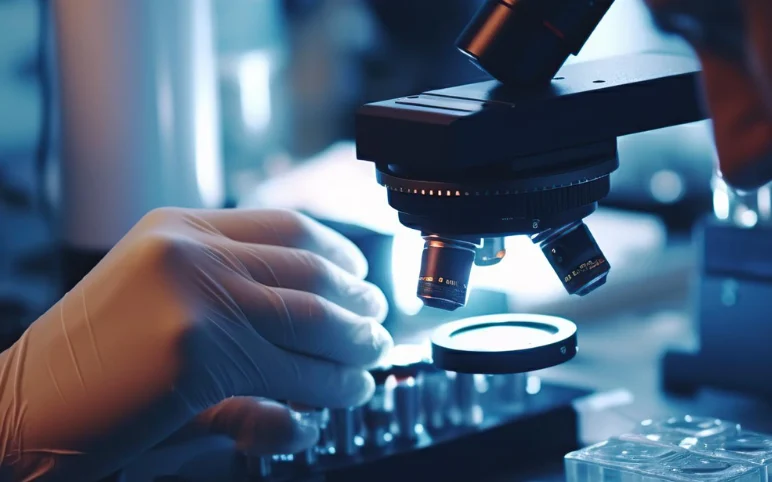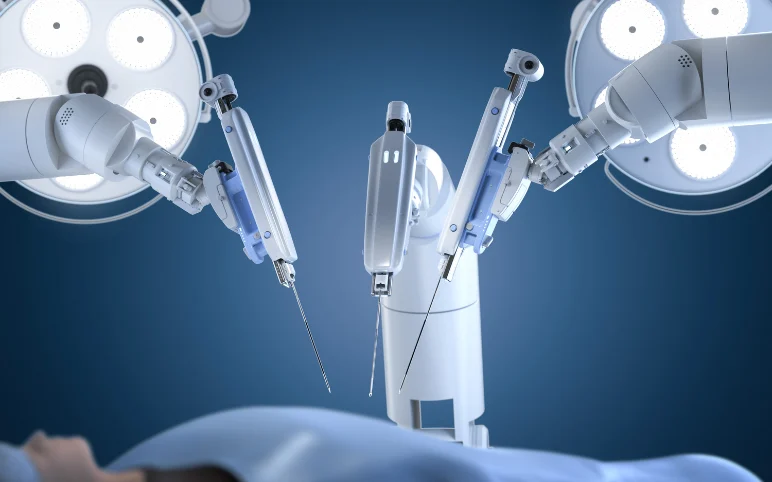A Glance at Key Insights From 42nd J.P. Morgan Annual Healthcare Conclave
Jan 17, 2024
Table of Contents
From January 8th to 11th, 2024, the 42nd Annual J.P. Morgan Healthcare Conference (JPM24) took center stage in San Francisco, CA, USA. Spanning four dynamic days, this conference saw the active participation of prominent figures from major pharmaceutical, biotechnology, Medtech, HealthTech entities, and emerging fast-growth Startups. The vibrant event brought together over 8,000+ investors, entrepreneurs, leaders, and innovative technology creators, transforming San Francisco into a hub of healthcare exploration. As attendees immersed themselves in insightful discussions and collaborative sessions, the conference provided a unique platform for shaping the collective vision and mapping the trajectory of the future in healthcare.
At the heart of the J.P. Morgan Healthcare Conference lies a dynamic platform where thought leaders converge to illuminate the latest advancements in healthcare. This esteemed event not only showcases major announcements and strategic alliances but also serves as a catalyst for groundbreaking breakthroughs in medical research and technology. The insights unveiled during these gatherings hold the power to redefine industry landscapes, and direct investment flows, steer the trajectory of healthcare trends, and propel collaborative efforts that reshape the future of innovation. As stakeholders engage in dialogue, forging connections, and sharing expertise, the ripple effects of the conference continue to resonate, fostering a culture of continuous progress within the healthcare domain
Downloads
Click Here To Get the Article in PDF
Recent Articles
- Merck and Moderna Initiate Study to Evaluate V940; FDA Approves Vertex and CRISPR Therapeutics’ C...
- Cyclerion’s olinciguat flunks sickle cell test; Nimbus nets $60M; Dyno-Roche’s gene t...
- Ears to the Future: Evaluating Key Advancements and Trends Driving the Audiology Devices Market G...
- Biogen’s AMD Biosimilar Gets Approval; SmartLabs Series B Funding; BARDA, Partner Therapeutics in...
- AstraZeneca and Daiichi Sankyo’s Enhertu US Approval; Basilea’s ZEVTERA FDA Approval; Genmab’s Pr...
Notable Insights and Key Highlights From J.P. Morgan Healthcare Conference (JPM24)
- JP Morgan 2024 witnessed the presence of Artificial Intelligence greater than ever: Sanofi, Roche, Amgen and others ready to embrace Artificial Intelligence for identifying and developing new drugs.
- Novartis Acquires Calypso Biotech in a deal with a USD 250 million initial payment, securing exclusive rights to interleukin-15 antibody CALY-002.
- GlaxoSmithKline unveils acquisition plan for Aiolos Bio, granting GSK entry to a potentially superior long-acting antithymic stromal lymphopoietin (TSLP) monoclonal antibody.
- Blueprint unveils discontinuation of two lung cancer drugs, charts course for GAVRETO launch and advancement of BLU-222 development.
- MSD’s acquisition of harpoon therapeutics confirmed for USD 680 million, expanding and diversifying oncology pipeline.
- Regeneron’s flourishing launch of EYLEA HD sets the stage for collaborative venture with Novo on WEGOVY combo, paving the way to leadership in genetic medicines.
- Sarepta Therapeutics maintains optimism for 2024, sets ambitious goal to expand ELEVIDYS approval to encompass all Duchenne Muscular Dystrophy patients.
- Competitive face-off between GSK and Pfizer–RSV vaccine
- Roche excited about blood cancer portfolio, foresees LUNSUMIO and COLUMVI leading recovery after a period of hematology sales decline.
- Sanofi is betting big on its immunology portfolio, with goals of achieving approx. USD 10 billion in annual sales by 2030.
- Johnson & Johnson’s acquisition of Ambrx antibody-drug conjugates (ADC). PSMA ADC being the highlight of the acquisition
Mergers and Acquisitions (M&A) Activity Takes Center Stage at J.P. Morgan Healthcare Conference (JPM24)
Commencing in San Francisco on Monday morning, the annual JP Morgan Healthcare conference witnessed significant announcements in the realm of Big Pharma acquisitions. Notable players in the pharmaceutical industry revealed major Mergers and Acquisitions activities, unveiling strategic moves that are poised to reshape the landscape of healthcare in 2024 and the upcomign years. Here are some of the pivotal developments that emerged during this influential conference:
- On the opening day of the yearly JPMorgan Healthcare Conference, Johnson & Johnson announced that it plans to buy Ambrx Biopharma for USD 2 billion. This acquisition involves obtaining a company that focuses on developing drugs for a high-demand field in cancer treatment. By making this acquisition, Johnson & Johnson will expand its ADC drugs portfolio, such as ARX517 for treating metastatic castration-resistant prostate cancer. The company will also gain ARX788, designed for metastatic HER2+ breast cancer, and ARX305, which is used in the treatment of renal cell carcinoma.
- Speculation about MSD’s interest in Harpoon Therapeutics was also confirmed on day one of JP Morgan with a USD 23-per-share proposal, establishing the company’s value at USD 680 million. This deal provides MSD/Merck with a pipeline of T-cell engagers, primarily centered around trispecific proteins. The lead candidates include HPN328, focusing on DLL3 and designed for small cell lung cancer (SCLC), neuroendocrine prostate cancer (NEPC), and other neuroendocrine tumors. Additionally, there’s HPN217, directed at BCMA and currently undergoing Phase I/II and Phase I testing for multiple myeloma.
- Novartis has announced its acquisition of Calypso Biotech, involving an initial payment of USD 250 million and potential milestone payments that could reach up to USD 175 million. Through this agreement, Novartis will gain exclusive rights to CALY-002, identified by the company as a “pipeline-in-a-drug.” CALY-002, described as a therapeutic antibody targeting Interleukin-15, is presently undergoing Phase Ib trials for treating celiac disease and eosinophilic esophagitis. However, its potential extends to others. Novartis also announced another licensing deal with China’s Shanghai Argo Biopharmaceutical covering two RNAi interference (RNAi) therapies in the cardiovascular and metabolic diseases area.
- On the second day of JP Morgan’s GlaxoSmithKline announced a USD 1.4 billion deal to buy asthma drug maker Aiolos Bio. The acquisition provides GSK with access to Aiolos’ AIO-001, a potentially best-in-class, long-acting antithymic stromal lymphopoietin (TSLP) monoclonal antibody ready to enter phase II clinical development for the treatment of adult patients with asthma, with potential for additional indications including chronic rhinosinusitis with nasal polyps. AIO-001 was exclusively licensed to Aiolos outside of Greater China by Jiangsu Hengrui Pharmaceuticals (Hengrui).
“Our overall M&A strategy is really to focus on sub USD 5 billion assets,” Novartis CEO Vasant Narasimhan said in an interview on CNBC. “I can’t comment on specific deals.”
“We look at larger deals, which is why I think you see the media coverage, it’s always something we do and we have an obligation to do that,” Narasimhan added. “What I really want to highlight is that while we look at larger deals, our M&A stategy is bolt ons.”

Regeneron Looks To Team Up With Novo On WEGOVY Combo
Regeneron is off to a very successful launch of EYLEA HD with a revenue of USD 123 million in the first quarter of launch in Q4 2023. Regeneron also planning to conduct a clinical trial testing a combination therapy that includes its antibody drugs and Novo Nordisk’s WEGOVY. The objective is to investigate whether this combination can mitigate the muscle mass loss associated with WEGOVY and other GLP-1 agonists when used individually.
“We’ll be initiating our trial this year to test these muscle preservation agents in combination with semaglutide,” CEO George Yancopoulos said during the company’s presentation at the J.P. Morgan Healthcare Conference.
“Moving forward, we’re trying to become a leader in the genetic medicines field, and are looking to new collaborations as next-generation technologies have emerged with better ways of editing and delivering genes,”– Regeneron’s SVP of business development Nouhad Husseini.
Regeneron has been building up in-house capabilities to manufacture and design novel AAV constructs, and using antibodies to retarget AAVs to cell types beyond the liver. The company is also seeking partners that could apply Regeneron’s antibody chops to ADCs.
Nouhad Husseini: “It’s likely we’ll do one or two or three deals in the coming years that have that as a theme – using Regeneron’s targeting capabilities to address delivery challenges.”
Blueprint Ditches Lung Cancer, Sets Sail For Mast Cell Disease And Breast Cancer
Blueprint announced discontinuation of further investment in the early clinical-stage therapies BLU-945 and BLU-451 for EGFR-mutant NSCLC and explored strategic options, including potential out-licensing, based on the evolving external landscape and emerging clinical data.
Blueprint Medicines advances BLU-222, a promising CDK2 inhibitor, for combination therapy in HR+/HER2– breast cancer, building on positive monotherapy results. The company is actively exploring strategic partnerships to optimize BLU-222 as a foundational combination treatment for HR+/HER2- breast cancer and other CDK2-sensitive cancers.
Sarepta’s Eyeing On 2030, Destined To Thrive As The Blockbuster Biotech
Despite the controversy surrounding gene therapy approval and uncertainties stemming from mixed clinical trial outcomes, Sarepta Therapeutics remains optimistic about 2024. ELEVIDYS’ total sales since its approval on June 2023 amounted to USD 200 million. Now, Sarepta aims to broaden the approved application to include all patients with Duchenne muscular dystrophy (DMD). Despite not meeting the primary endpoint in a crucial trial, the company continues to assert its confidence, stating that the data surpassed the criteria for substantial evidence of effectiveness.
Sarepta expects that 2024 will be monumental with several priorities including the announcement of clinical data for next-generation RNA-based therapy/PPMO (SRP-5051) to treat Duchenne muscular dystrophy. By 2030 Sarepta is poised to become a big biotech, focusing on cutting-edge genetic medicine to improve the human condition.
Over the next few years, it is anticipated that the field of cell and gene therapies for rare indications will expand quickly as a growing number of companies receive investigational new drug applications each year for these treatments, along with rising regulatory approval in the United States and Europe.
RSV Showdown In JP Morgan, Competition Set To Heat Up!
GSK’s celebrated the robust launch of their Respiratory Syncytial Virus (RSV) vaccine AREXVY, expressing confidence in reaching the projected peak sales of USD 3 billion. Despite GSK’s dominance, Pfizer, with a 35% market share, is gearing up for a fierce 2024 battle. GSK highlighted AREXVY’s brand recognition among two-thirds of relevant US physicians, whereas Pfizer’s CEO, hinted at an aggressive pursuit of retail contracts, emphasizing ABRYSVO’S dual indication for expectant mothers as a strategic advantage to enhance familiarity and utilization. The stage is set for a competitive face-off in the RSV vaccine arena.
Astrazeneca Sets Sights On A Top-Three Spot By 2030, Steering Towards Success With A Strategic Focus On The Five Big Disease Areas
AstraZeneca aims for a top-three position by 2030 with a focus in oncology, cardiovascular disease, rare diseases, renal and metabolism, and respiratory and immunology, emphasizing vaccines and immunotherapies. The company is expecting 15 new therapies that could reach the market by that year.
AstraZeneca is bolstering its standing across different industries through significant acquisitions. In the previous month alone, AstraZeneca closed two transactions exceeding USD 1 billion each and a third one valued at USD 247 million. In November, the company finalized a deal potentially reaching USD 2 billion for Eccogene’s oral GLP-1 prospect.
“We know not everything’s gonna work out. But I think there are multiple elements where I don’t think we still get credit,” Sarin said.
Roche Expresses Confidence In Its Robust Array Of Products And Extensive Pipeline
Roche expressed enthusiasm for the company’s blood cancer portfolio. They indicated that the recently approved T-cell engagers, LUNSUMIO and COLUMVI, are poised to sustain a recovery following a phase of diminishing hematology sales. Roche anticipates a 14% compound annual growth rate in the sales of its hematology products until 2026, attributing this growth to its diverse portfolio and extensive pipeline, as mentioned in the corporate presentation. The company expressed satisfaction with its overall portfolio, highlighting the achievement of 16 blockbuster drugs in 2023, a significant increase from the 7 recorded in 2022.

Downloads
Article in PDF



